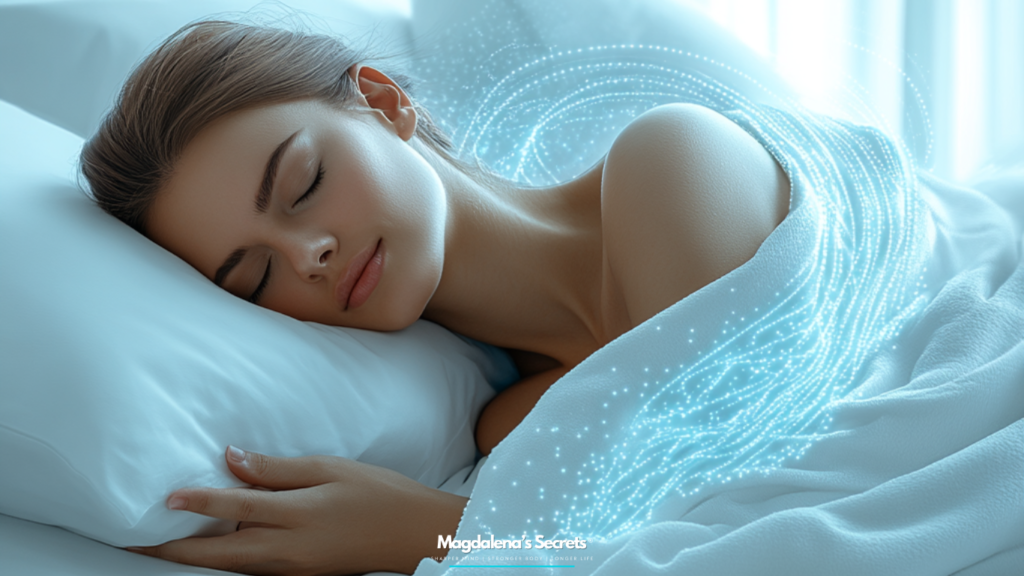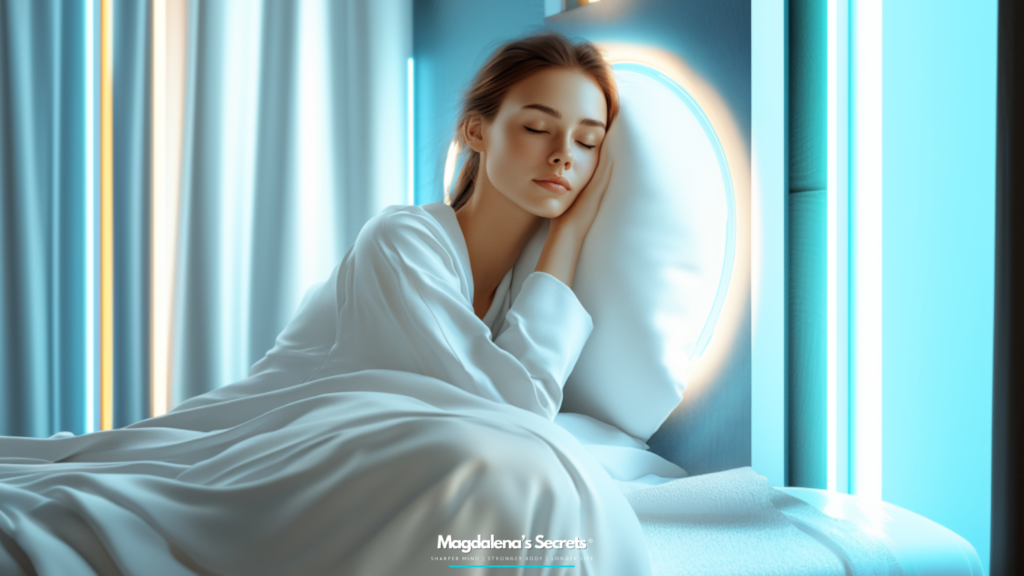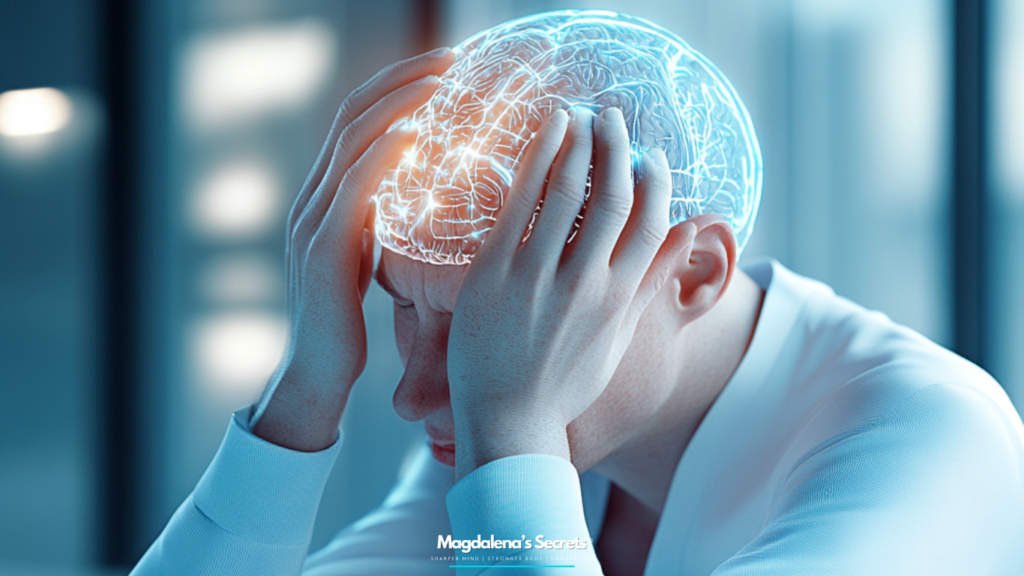In the pursuit of a long, healthy, and vibrant life, nutrition and exercise are often seen as the main pillars. But there’s a third, equally—if not more—important pillar that too often gets overlooked: sleep.
According to leading neuroscientist and sleep expert Dr. Matthew Walker, sleep is the single most effective thing we can do to reset our brain and body health each day. It’s not just about feeling rested. Sleep is a biological necessity that supports every system in your body—and poor sleep accelerates aging faster than almost anything else.
If you’re serious about aging well, having sharp cognition, a strong immune system, balanced hormones, and a longer life, then quality sleep isn’t a luxury—it’s a non-negotiable.
Why Sleep Is the Most Critical Pillar of Health
While diet and exercise are crucial for wellness, sleep underpins both. Without sufficient, quality sleep, your body can’t repair itself from workouts, nor can it regulate hunger hormones, metabolism, or emotional balance effectively.
Think of sleep as the foundation of a house. You can have the most beautiful design (great nutrition) and strong walls (regular workouts), but if the foundation is unstable, the whole structure is at risk. Sleep is that foundation.
In fact, poor sleep has been directly linked to:
- Increased risk of Alzheimer’s and dementia
- Elevated blood pressure and heart disease
- Weight gain and insulin resistance
- Mood disorders like depression and anxiety
- Weak immune function and slower recovery
When sleep suffers, so does everything else.
Deep Sleep: Your Body’s Nightly Repair Mode
The deepest stages of non-REM sleep—often referred to as slow-wave or deep sleep—are when your body performs critical repair functions.
During this phase:
- Growth hormone is released, helping repair muscles and tissues
- The brain clears out waste proteins (like beta-amyloid, linked to Alzheimer’s)
- The immune system is strengthened
- Blood pressure drops, giving your heart a break
The more deep sleep you get, the more resilient and physically rejuvenated you become. Deep sleep is essential for slowing the aging process and keeping your body in peak condition.
REM Sleep: Memory, Mood, and Emotional Resilience
While deep sleep restores the body, REM sleep is where the brain does its most essential cognitive work.
REM is critical for:
- Emotional regulation
- Memory consolidation
- Creativity and learning
- Processing stress and trauma
It’s also the phase where dreams occur—and although we often don’t remember them, our brains use this time to sort through emotions and problem-solve.
When REM sleep is disrupted or cut short (often due to alcohol, stress, or late-night screens), we become more reactive, forgetful, and emotionally fragile the next day. Long term, REM deprivation contributes to cognitive decline and increased risk of neurodegeneration.
HRV & Resting Heart Rate: Sleep’s Silent Biometrics
Two of the most powerful indicators of health and recovery during sleep are:
Resting Heart Rate (RHR):
A lower RHR during sleep indicates that your heart is relaxed and recovering. As you improve sleep quality, RHR naturally drops, which is associated with lower cardiovascular risk and better metabolic function.
Heart Rate Variability (HRV):
HRV measures the variation in time between heartbeats, and higher HRV is a marker of good health, recovery, and stress resilience. During quality sleep—especially deep and REM phases—HRV increases.
Dr. Walker emphasizes that sleep is when your autonomic nervous system resets, shifting from sympathetic (fight-or-flight) to parasympathetic (rest-and-repair) mode. This is where true recovery happens—not just from exercise, but from life itself.
Sleep Adds Years to Your Life—and Life to Your Years
Several large-scale studies have confirmed that people who consistently get 7–9 hours of quality sleep each night live longer, have fewer chronic illnesses, and enjoy a higher quality of life.
On the other hand, chronically sleeping less than 6 hours per night increases your risk of:
- Heart attack and stroke
- Type 2 diabetes
- Cancer
- Cognitive decline and dementia
Even just one night of sleep deprivation can reduce immune function by up to 70%. Sleep is your daily anti-aging elixir, and it’s free.
Simple Ways to Optimize Your Sleep
Ready to take your sleep seriously? Here are some key strategies:
• Maintain a consistent sleep schedule, even on weekends
• Avoid screens 1–2 hours before bed (blue light suppresses melatonin)
• Cool your bedroom to around 18°C for better deep sleep
• Avoid alcohol—it disrupts REM and fragments sleep
• Avoid caffeine after noon, as it blocks adenosine, the sleep pressure chemical
• Try magnesium bisglycinate, glycine and spermidine before bed for deeper sleep
• Practice evening wind-down rituals, like reading, light stretching, or meditation
And if you want to monitor your progress, tools like the Oura Ring or Whoop can track your HRV, RHR, deep sleep, and REM, giving you insight into how your habits are affecting your biological recovery and longevity.
Final Thoughts: Sleep First, Thrive Always
Sleep isn’t a passive state. It’s an active biological process that repairs, restores, and rejuvenates your body and brain. It’s the cornerstone of longevity, mental clarity, emotional stability, and physical performance.
• Deep sleep rebuilds the body
• REM sleep sharpens the brain
• Low RHR and high HRV reflect recovery
• Quality sleep extends your healthspan
If you truly want to optimize your health and extend your life, start with sleep—because everything else depends on it.




